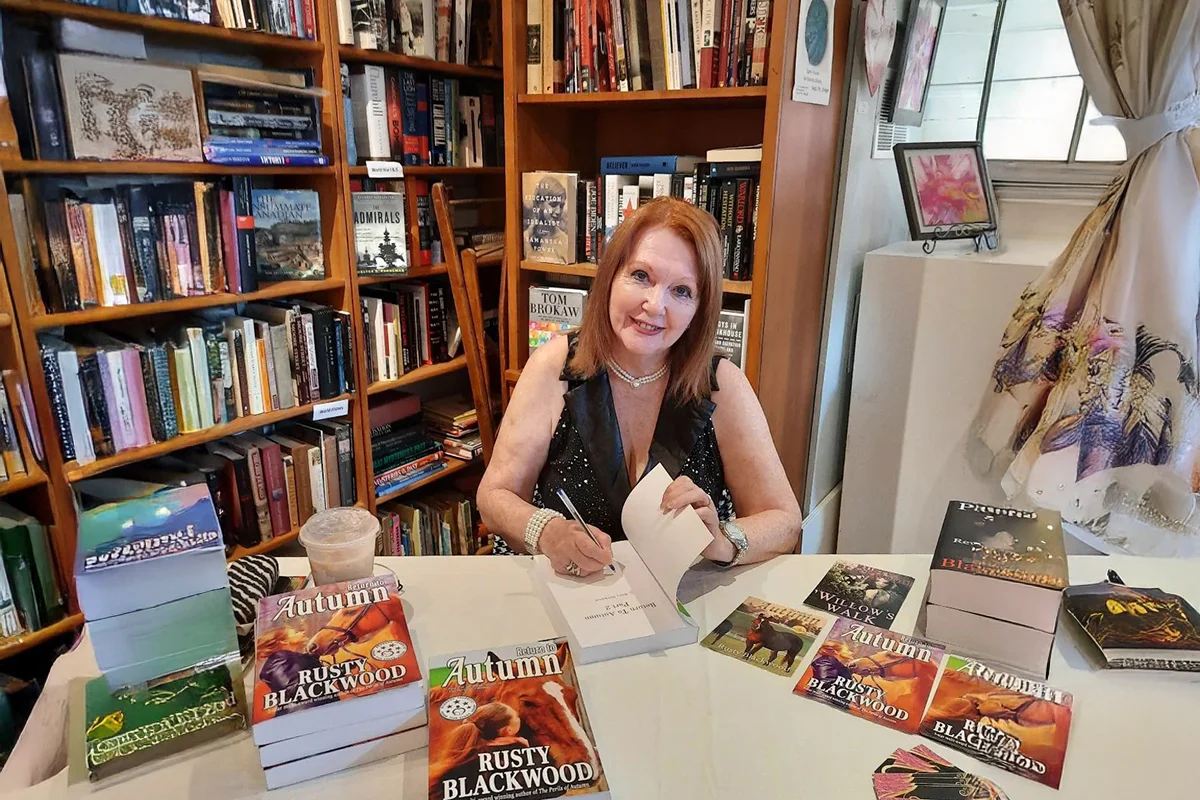PHOTO: Groundbreaking author weaving bold, female-led speculative fiction grounded in political realism and emotional complexity.
Exploring Women’s Stories, Political Conflict, and Human Complexity Across New Worlds
Stella Atrium crafts speculative fiction that centres authentic female experiences, tackles political and societal issues, and blends imaginative world-building with real-world relevance through her Tribal Wars series and standalone novel Seven Beyond.
Stella Atrium blends powerful storytelling with incisive social commentary, pushing the boundaries of speculative fiction with bold, female-centered narratives that reflect real-world complexities. Best known for her Tribal Wars series, Atrium has carved a distinct voice in science fiction—one rooted in authenticity, layered character development, and a deep understanding of political and cultural systems.
Atrium’s novels do more than transport readers to other worlds; they shine a light on the nuances of power, identity, and gender dynamics. Her richly imagined planet Dolvia, the backdrop for the Tribal Wars series, offers a compelling stage where tribal communities grapple with offworld exploitation, corruption, and survival. Rather than relying on tired archetypes, Atrium centres women who are ranchers, doctors, warriors, and diplomats—characters shaped not by fantasy tropes but by grit, empathy, and real-life parallels.
Stella Atrium is a bold, insightful voice in speculative fiction, elevating the genre with emotional depth and fearless authenticity.
In The Bush Clinic, Atrium draws from contemporary global issues to show how women in conflict zones navigate power structures stacked against them. “The men are off fighting in the militia,” she explains. “The women have no weapons, no education, no voice in the public square. Do they band together to protect the children, or do they undercut each other?” These questions fuel her fiction, which refuses to shy away from uncomfortable truths or oversimplified solutions.
Atrium’s literary goals also extend to spotlighting the insidious nature of political graft. She examines how foreign corporations exploit local governments, how aid money is misappropriated, and how grassroots protest can force change—sometimes at great personal cost. In The Body Politic, one such protest is death by fire in the public square, inspired by real-world examples of self-immolation as political dissent. Atrium refuses to romanticize these acts. Instead, she portrays them with unflinching honesty, exploring how media can twist female protest into pity rather than valor.
Though focused on women, Atrium’s novels don’t neglect male characters. She introduces warriors, peacekeeping generals, crusading journalists, and businessmen—all shaped by their environments and moral choices. Still, her intent is clear: “A woman is more interesting when an interesting man is interested in her,” she says, emphasising the power of dynamic interplay rather than dominance.
Her standalone novel Seven Beyond diverges from her series work, embracing metaphysical themes through the character of Christopher Meenins, a scholar from a long-lived alien race. At 800 years old, he begins to uncover memories of past transgressions, launching a globe-spanning journey of redemption, history, and reconciliation. The novel’s philosophical tone highlights Atrium’s versatility and deepening narrative ambition.
A former university instructor who developed a course on migration flows, Atrium channels her academic experience into her fiction. She doesn’t just build worlds—she constructs societies, economies, and belief systems that mirror the fragility and resilience of real-life communities. Her attention to sensory details—wet shoes, cold coffee, harsh light—grounds even the most otherworldly scenes in relatable textures.
“Characters are conflicted, selfish, and maybe even cowardly,” she admits. “Acts of heroism are seldom, whereas questions of identity and one’s place within the group are many.” Atrium pushes beyond the traditional arc of action-adventure, choosing instead to focus on the drama of survival, ethical compromise, and the pain of change.
She offers frank advice to aspiring speculative fiction writers: “Count the cost—especially for time invested in developing big stories,” and “Keep it real—especially for female characters.” Her call is for honest representation that captures a fuller emotional spectrum, rejecting the oversimplified “princess” trope for women of depth, agency, and contradictions.
Stella Atrium’s work reminds readers that speculative fiction isn’t just about escaping reality—it’s about understanding it through new lenses. Her commitment to complex storytelling, rooted in both scholarship and empathy, continues to challenge and enrich the genre.
This article was adapted from an interview with Stella Atrium in the latest issue of Reader’s House.











